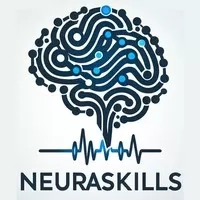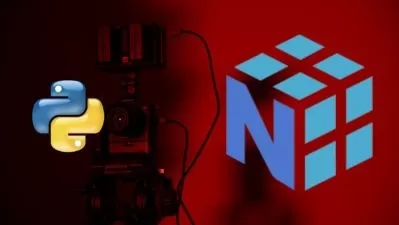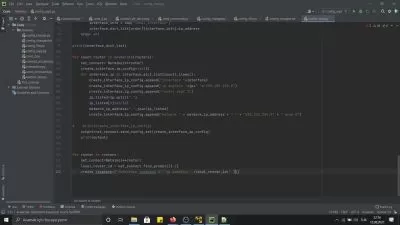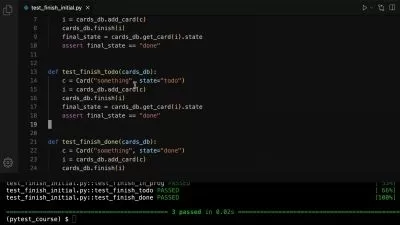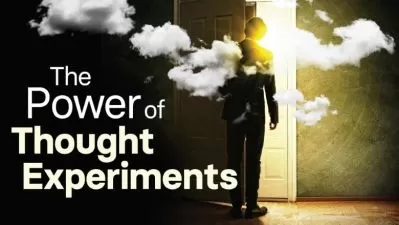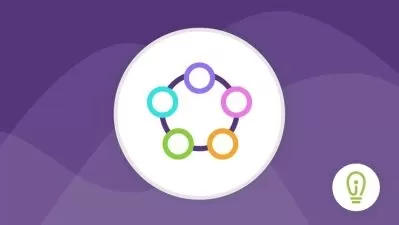Mastering PsychoPy for Psychology and Neuroscience
Neura Skills
3:51:39
Description
A Course on Cognitive Task Design with PsychoPy
What You'll Learn?
- Foundations of Cognitive Tasks: Gain a comprehensive understanding of cognitive tasks, including a brief history, mental chronometry, and the anatomy of tasks.
- Paradigms in Cognitive Experiments: Explore key paradigms like Go/NoGo, Oddball and Stroop.
- Experiment Building with Psychopy: Acquire hands-on experience with Psychopy, from installation to creating your first experiment.
- Integrating Psychopy with EEG and fMRI Devices: Students will gain proficiency in connecting Psychopy to EEG (Electroencephalography) and fMRI.
Who is this for?
What You Need to Know?
More details
DescriptionThis comprehensive course will help you get the full potential of PsychoPy for psychology and neuroscience experiments. Whether you're a beginner or an expert, this course equips you with the knowledge and skills needed to excel. This course is suited for: Beginners in psychology, cognitive neuroscience, and neuroscience who want to design and conduct experiments using PsychoPy's Builder View. Professionals and researchers aiming to enhance their skills in experimental design and implementation.
This is an introductory course for beginners. No programming or preinstalled software is needed. The only required software includes Psychopy and FaceGen Modeller, both of which will be demonstrated how to install during the course. The course will focus on Builder View of the software. The only thing you need is a keyboard and a mouse and also a curious mind.
Following the foundations, the course explores "Paradigms in Cognitive Experiments," where students will study prominent paradigms such as the Go/NoGo, Oddball, and Stroop tasks. These paradigms are crucial for understanding cognitive processing and are widely used in both psychological and neuroscientific research. The module covers the psychological and neuroscientific basis of these paradigms, their clinical relevance, and the theories underlying each, providing a comprehensive view of how these experiments are pivotal in cognitive research.
A practical component of the course is "Experiment Building with PsychoPy," where students get hands-on experience with PsychoPy software, from installation to creating their first experiment. This section teaches how to set up experimental conditions, present stimuli, record responses, and analyze the results, offering a complete toolkit for conducting cognitive psychology experiments.
The course also includes a segment on "Specialized Experiments," focusing on advanced topics such as utilizing facial images for social experiments with tools like FaceGen Modeller. Furthermore, students will learn to integrate PsychoPy with EEG (Electroencephalography) and fMRI (Functional Magnetic Resonance Imaging) devices, a skill that greatly expands the scope of their research capabilities by incorporating neuroimaging techniques.
Enroll now to master experimental design with PsychoPy!
Who this course is for:
- This course is designed for beginners in the fields of psychology, cognitive neuroscience, and neuroscience who aspire to independently design and conduct experiments using PsychoPy Builder View. It is also suitable for experts looking to enhance their skills in experimental design and implementation.
This comprehensive course will help you get the full potential of PsychoPy for psychology and neuroscience experiments. Whether you're a beginner or an expert, this course equips you with the knowledge and skills needed to excel. This course is suited for: Beginners in psychology, cognitive neuroscience, and neuroscience who want to design and conduct experiments using PsychoPy's Builder View. Professionals and researchers aiming to enhance their skills in experimental design and implementation.
This is an introductory course for beginners. No programming or preinstalled software is needed. The only required software includes Psychopy and FaceGen Modeller, both of which will be demonstrated how to install during the course. The course will focus on Builder View of the software. The only thing you need is a keyboard and a mouse and also a curious mind.
Following the foundations, the course explores "Paradigms in Cognitive Experiments," where students will study prominent paradigms such as the Go/NoGo, Oddball, and Stroop tasks. These paradigms are crucial for understanding cognitive processing and are widely used in both psychological and neuroscientific research. The module covers the psychological and neuroscientific basis of these paradigms, their clinical relevance, and the theories underlying each, providing a comprehensive view of how these experiments are pivotal in cognitive research.
A practical component of the course is "Experiment Building with PsychoPy," where students get hands-on experience with PsychoPy software, from installation to creating their first experiment. This section teaches how to set up experimental conditions, present stimuli, record responses, and analyze the results, offering a complete toolkit for conducting cognitive psychology experiments.
The course also includes a segment on "Specialized Experiments," focusing on advanced topics such as utilizing facial images for social experiments with tools like FaceGen Modeller. Furthermore, students will learn to integrate PsychoPy with EEG (Electroencephalography) and fMRI (Functional Magnetic Resonance Imaging) devices, a skill that greatly expands the scope of their research capabilities by incorporating neuroimaging techniques.
Enroll now to master experimental design with PsychoPy!
Who this course is for:
- This course is designed for beginners in the fields of psychology, cognitive neuroscience, and neuroscience who aspire to independently design and conduct experiments using PsychoPy Builder View. It is also suitable for experts looking to enhance their skills in experimental design and implementation.
User Reviews
Rating
Neura Skills
Instructor's Courses
Udemy
View courses Udemy- language english
- Training sessions 45
- duration 3:51:39
- Release Date 2024/06/16





